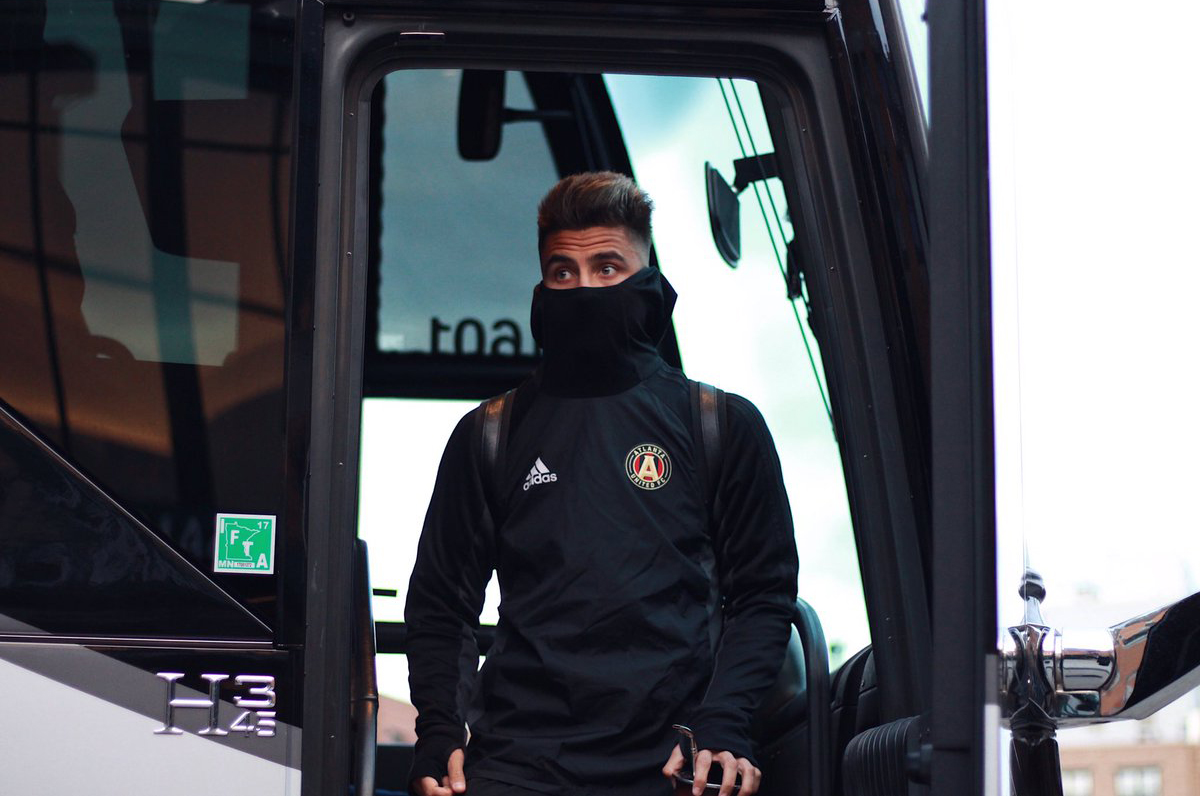Today’s inaugural MLS home opener for Minnesota United FC looks to be the coldest-ever and one of the coldest games ever played in MLS. Much like swirling snowflakes in a Minnesota snow storm, a question seems to be circling around the internet: Will the game be played if it snows? The answer is, most likely, yes. And here’s why.
In December, when the Loons held their Midway stadium groundbreaking, MLS commissioner Don Garber stated that it was the coldest groundbreaking in the history of the league. St. Paul Mayor Chris Coleman responded, “I’d be happy to not only host the coldest groundbreaking but the coldest championship because we’re hardy and we can handle it.”
Minnesota United most certainly has that same hope, that their “hardy” fans will attend today’s frozen match which likely will also include snow.
On Friday, the New England Revolution canceled their home opener, scheduled for Saturday, because of inclement weather conditions. Weather yesterday in Boston was 23° F with wind gusts up to 40 miles per hour, putting the windchill into the single digits. “All of us involved in this decision believe this is in the best interest of the fans, the players, and the game,” said Revolution President Brian Bilello. Clearly, this was a decision made by the front office concerned about attendance and safety of the fans with windchill being dangerous.
Forecast for today’s home opener at TCF Bank Stadium in Minneapolis is about the same temperature as it was in Boston yesterday, around 23° F at kickoff. Added to that, the Twin Cities are expecting a 90-percent chance of snow with the heaviest accumulations projected around gametime, 4:00 p.m. Central. Unlike Boston, the wind in Minneapolis will be minimal.
we'll likely be seeing the heaviest snow we see with this system during the game.
— NWS Twin Cities (@NWSTwinCities) March 11, 2017
So when is it too cold or is there too much snow to where a match could get canceled?
Brian Hall is director of refereeing for CONCACAF. In an interview with FiftyFive.One last year, Hall was asked this very question.
Hall says the safety of the players and the spectators is paramount to a referee. “We show up at a game and it could be in Minnesota, Alaska, or Australia. The first thing they will ask themselves is if we are endangering the safety of the players and the spectators. If that’s the case we simply won’t play the game. If it’s safe for both spectators and players, then fine.”
Hall recalled the U.S. men’s national team game in Denver a few years back when they played Costa Rica with heavy snow falling. “In Europe, they constantly play with rain, snow, and sleet. Of course, at a certain time of the season, they then change the color of the ball.”
Many countries and teams use weather to their advantage and Hall said there is nothing wrong with that. “They perhaps grew up playing all their games in altitude and they live in altitude. Others like to play in very, very warm weather because the players are used to playing [in it]. Others want to play in cold weather because they are used to playing in it and they believe their opponent is not. That’s a tactic that every team will evaluate and say we are trying to create the best tactical advantage for us. So any team can use weather as a competitive advantage.”
Hall had one more word of advice for those attending a cold weather game, “A lot of people will have to dress warm,” said Hall. “Seriously, a game is a game. The referees show up and decide if the pitch is playable. If it’s playable, the weather and conditions are the same for both teams.”
Break out the high visibility soccer balls.

Leave a Reply